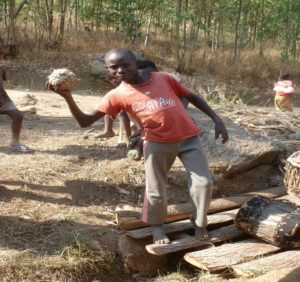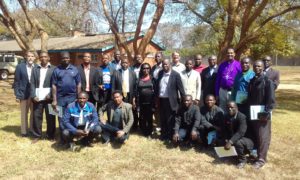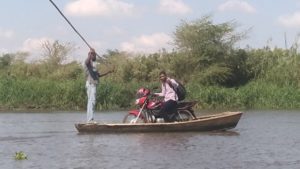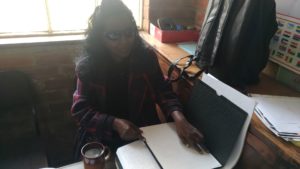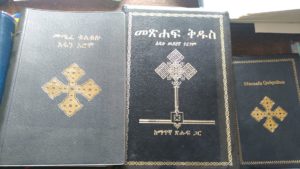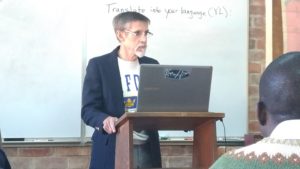The Food of Your Eating
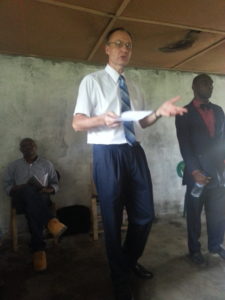
What are you eating today? We had a great opportunity to eat some Liberian food last week: Rice with greens mostly, with the “heat” left out for our stateside taste buds.
Much more than that, we had the unique opportunity to meet some Liberians who craved the truth of Scripture. They had heard much through the filters of Reformed and Pentecostal teachers. As they recognized the falsehood there, they invited WELS’ representatives to bring the truth. Matthew Cephas is a Liberian from Holy Trinity Congregation in New Hope, MN, where he is currently taking the course for pastoral ministry through our Pastoral Studies Institute. The PSI program is headed by Prof. E. Allen Sorum at Wisconsin Lutheran Seminary. Prof. Sorum worked through Pastor Dennis Klatt there at Holy Trinity to train Matthew for this unique opportunity for ministry.
Matthew organized the place and the food with his friends there in Buchanan, Liberia, so that Prof. Sorum and Pastor Klatt could accompany him to meet One Africa Team representatives John Hartmann and Dan Kroll for a solid week of teaching.
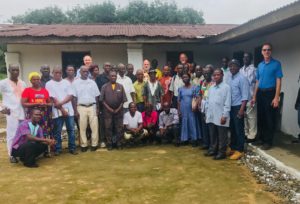
Who taught what subject is not important here. What is important is the response of eager students, many of whom are already in leadership positions in congregations in Liberia. My list says 33 in number, but some came later in the week, so I may have missed a few. It’s the rainy season in Liberia now, so as many as 20 others were not able to make it due to the condition of the roads. We understood the challenges of travel in Liberia during this time of the year after we got caught in one of the downpours on our afternoon walk. Again, we were amazed to hear heavy rain each of the four nights we were in Buchanan.
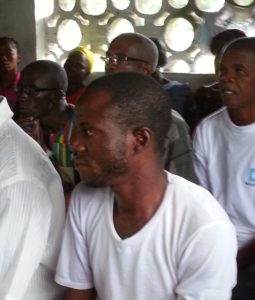
But these people were hungry! Seeing those who were able to dig into the Scriptures with us with many challenging questions reminded me of the words Jesus spoke in his Sermon on the Mount: “Blessed are those who hunger and thirst for righteousness, for they will be filled” (Matthew 5:6). The people here at Buchanan were reminded that true righteousness is found only in the Word of God – in the substitutionary sacrifice of our precious Savior Jesus Christ. They were happy to hear that salvation does not depend on their decisions and good works, but that forgiveness is their own through faith alone, and that good works are naturally produced after sins have been forgiven. A young man named Chinyung Peygar commented with joy about our common foundation in the truth of Scripture: “You have given us the food of your eating.”
They could not get enough – they all want more. Pastors Hartmann and Kroll from One Africa Team will come back in November to introduce the Liberian Christians in Buchanan with another group of Liberians in Monrovia this November. It will be their job to unite these two groups, following God’s invitation found in the book of Isaiah: “Listen, listen to me, and eat what is good, and your soul will delight in the richest of fare” (Isaiah 55:2). In verse 6 of the same chapter Isaiah speaks to all of us: “Seek the Lord while he may be found; call on him while he is near.”
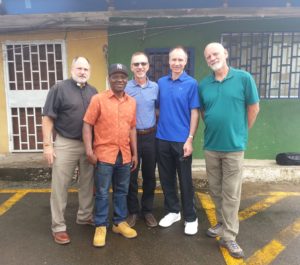
We’ll be eager to see what the Lord will do here in Liberia. Until then, we encourage all of you to continue feeding your own soul with the “richest of fare” – the truth of Scripture – and keep these people in your prayers as they continue in their quest for the truth, so that they find it clearly in the message of the Bible.
Dan Kroll serves as missionary to Cameroon and currently resides in Lilongwe, Malawi
Please pray for those working in fields that are ripe for harvest. Share their story, engage with future news and receive updates. Go to this link to learn more about our mission fields in Africa and how the Holy Spirit is working faith in people’s hearts https://wels.net/serving-others/missions/africa


